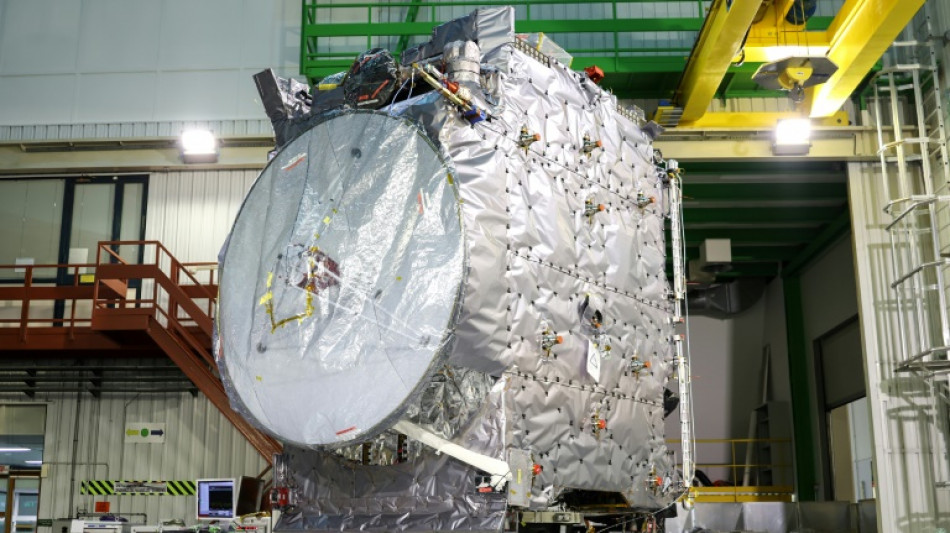
-
 California begins probe of Musk's Grok over sexualized AI images
California begins probe of Musk's Grok over sexualized AI images
-
Astronauts set to leave ISS in first-ever medical evacuation

-
 Napoli's stalemate with Parma opens door for Serie A leaders Inter
Napoli's stalemate with Parma opens door for Serie A leaders Inter
-
Syrian leader urges Kurdish integration as army sends troops east of Aleppo

-
 Denmark says White House talks failed to alter US designs on Greenland
Denmark says White House talks failed to alter US designs on Greenland
-
Venezuela looking to 'new era' after Maduro ouster, says interim leader

-
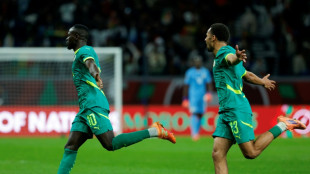 Mane takes dominant Senegal past Egypt into AFCON final
Mane takes dominant Senegal past Egypt into AFCON final
-
UK police admit 'mistakes' over Maccabi Tel Aviv fan ban

-
 Promoter says Joshua will return to ring when 'time is right' after horror crash
Promoter says Joshua will return to ring when 'time is right' after horror crash
-
California investigating Grok AI over lewd fake images

-
 Wales's Faletau set to miss bulk of Six Nations
Wales's Faletau set to miss bulk of Six Nations
-
Denmark, Greenland wrap up crunch White House talks
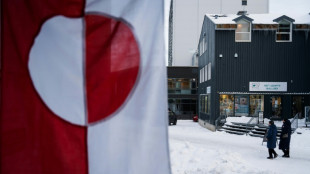
-
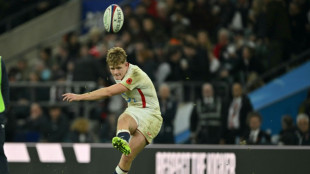 England sweating on Fin Smith's fitness for Six Nations opener
England sweating on Fin Smith's fitness for Six Nations opener
-
NASA acknowledges record heat but avoids referencing climate change
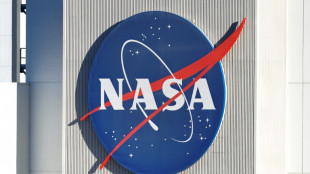
-
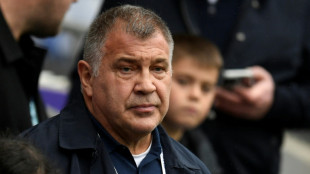 England rugby league coach Wane quits role
England rugby league coach Wane quits role
-
Oil prices extend gains on Iran worries

-
 European basketball pioneer Schrempf lauds 'global' NBA
European basketball pioneer Schrempf lauds 'global' NBA
-
Denmark, Greenland in crunch White House talks as Trump ups pressure
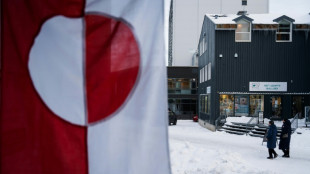
-
 Mitchell hits ton as New Zealand down India to level ODI series
Mitchell hits ton as New Zealand down India to level ODI series
-
Syrian army tells civilians to stay away from Kurdish positions east of Aleppo

-
 Spurs sign England midfielder Gallagher from Atletico Madrid
Spurs sign England midfielder Gallagher from Atletico Madrid
-
Russian captain tried to avoid North Sea crash: court

-
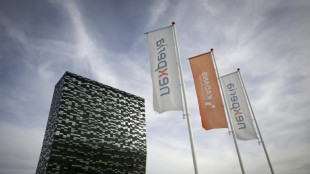 Battle over Chinese-owned chipmaker Nexperia rages in Dutch court
Battle over Chinese-owned chipmaker Nexperia rages in Dutch court
-
Transatlantic ties 'disintegrating': German vice chancellor

-
 Five problems facing Ukraine's new defence chief
Five problems facing Ukraine's new defence chief
-
Italian influencer Ferragni acquitted in Christmas cake fraud trial

-
 UK interior minister says 'lost confidence' in police chief over Maccabi fan ban
UK interior minister says 'lost confidence' in police chief over Maccabi fan ban
-
Ryanair hits out at 'stupid' Belgium over aviation taxes

-
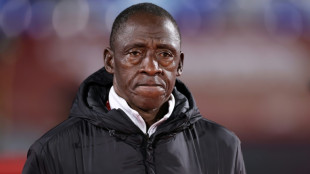 Burkina Faso sack coach Traore after AFCON exit
Burkina Faso sack coach Traore after AFCON exit
-
African manufacturers welcome US trade deal, call to finalise it
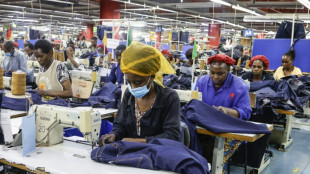
-
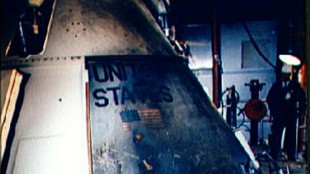 What happens when fire ignites in space? 'A ball of flame'
What happens when fire ignites in space? 'A ball of flame'
-
Death of author's baby son puts Nigerian healthcare in spotlight

-
 France bans 10 British anti-migrant activists
France bans 10 British anti-migrant activists
-
2025 was third hottest year on record: climate monitors

-
 Hydrogen planes 'more for the 22nd century': France's Safran
Hydrogen planes 'more for the 22nd century': France's Safran
-
Julio Iglesias, the Spanish crooner who won global audience
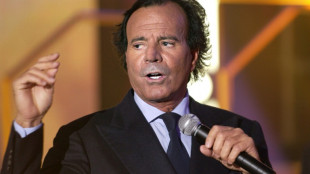
-
 'We can't make ends meet': civil servants protest in Ankara
'We can't make ends meet': civil servants protest in Ankara
-
UK prosecutors appeal Kneecap rapper terror charge dismissal

-
 UK police chief blames AI for error in evidence over Maccabi fan ban
UK police chief blames AI for error in evidence over Maccabi fan ban
-
Oil prices extend gains on Iran unrest

-
 France bans 10 UK far-right activists over anti-migrant actions
France bans 10 UK far-right activists over anti-migrant actions
-
Every cent you take: Sting, ex-Police band mates in royalty battle
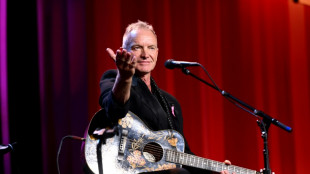
-
 Thailand crane collapses onto train, killing 32
Thailand crane collapses onto train, killing 32
-
Amateur stuns star-studded field to win 'One Point Slam' in Melbourne

-
 Italian influencer Ferragni awaits verdict in Christmas cake fraud trial
Italian influencer Ferragni awaits verdict in Christmas cake fraud trial
-
Louvre and other French museums fare hikes for non-European visitors

-
 Japan's Takaichi to dissolve parliament for snap election
Japan's Takaichi to dissolve parliament for snap election
-
Dutch court hears battle over Nexperia
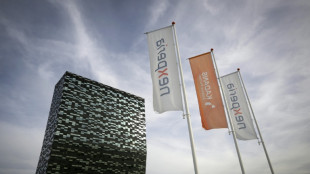
-
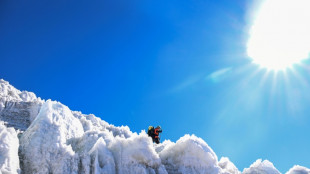 World-first ice archive to guard secrets of melting glaciers
World-first ice archive to guard secrets of melting glaciers
-
Ted Huffman, the New Yorker aiming to update top French opera festival
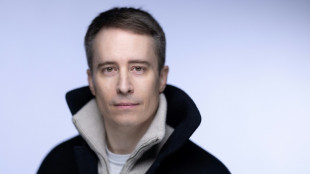

Europe's JUICE spacecraft ready to explore Jupiter's icy moons
Europe's JUICE spacecraft is all ready to embark on an eight-year odyssey through the Solar System to find out whether the oceans hidden under the surface of Jupiter's icy moons have the potential to host extraterrestrial life.
For now, the Jupiter Icy Moons Explorer (JUICE) is in a white room of its manufacturer Airbus in the southwestern French city of Toulouse. But its days on this planet are numbered.
Soon the spacecraft will be put in a container, wings carefully folded away, ahead of travelling to Europe's spaceport in Kourou, French Guiana off the coast of South America in early February.
From there, one of Europe's most ambitious space missions ever is scheduled to launch in April.
The scientists and engineers in Toulouse who have spent years working on the project are clearly emotional at the thought of saying goodbye to what they call "the beast".
They finally unveiled the six-tonne spacecraft to journalists on Friday -- showing off its 10 scientific instruments, antenna 2.5 metres (eight feet) in diameter for communicating with Earth, and vast array of solar panels which still need to be tested one last time.
As a parting gift, a commemorative plaque was mounted on the back of the spacecraft in tribute to Italian astronomer Galileo Galilei, who was the first to spot Jupiter and its largest moons in 1610.
Volcanic Io and its icy siblings Europa, Ganymede and Callisto were "the first moons discovered outside of our own," said Cyril Cavel, the Airbus project manager for JUICE.
Cavel carried a copy of Galileo's "Sidereus Nuncius", the first treatise based on observations made through a telescope.
More than 400 years later, JUICE will give a far clearer image of Europa, Ganymede and Callisto, before becoming the first spacecraft to orbit around one of Jupiter's moons.
- Earth is 'like a catapult' -
It will be the first European space mission that ventures into the outer solar system, which begins beyond Mars.
Jupiter is more than 600 million kilometres (370 million miles) from Earth and JUICE will take a circuitous path before its scheduled arrival in July 2031.
The spacecraft will travel a total of two billion kilometres, using the gravity of Earth -- then Venus -- for a boost along the way.
"It's like a catapult that gives us momentum to Jupiter," said Nicolas Altobelli, JUICE project scientist at the European Space Agency (ESA).
The extra travel time will allow JUICE's solar panels -- which cover an area of 85 square metres, the largest ever built for an interplanetary spacecraft -- to soak up as much power as possible.
It will need that power once it crosses the "frost line" between Mars and Jupiter, when temperatures could drop to minus 220 degrees Celsius.
Then JUICE will need to carefully hit the brakes so it can slip into Jupiter's orbit. For that part, it's on its own.
"We will follow the manoeuvre from Earth without being able to do anything -- if it fails, the mission is lost," Cavel said.
From Jupiter's orbit, the satellite will make 35 flybys of Europa, Ganymede and Callisto. Then it will enter the orbit of Ganymede, the largest of the three, before eventually falling to its surface.
- Not looking for 'big fish' -
JUICE's ice-penetrating cameras, sensors, spectrometers and radars will probe the moons to determine whether they could be habitable to past or present life.
It will not be looking at the frozen surface of the moons but 10-15 kilometres below, where vast liquid oceans flow.
This extreme environment could be home to bacteria and single-celled organisms.
But the mission will not be able to detect "big fish, or creatures," ESA director-general Josef Aschbacher said.
Instead it will look for conditions capable of supporting life, including liquid water and a source of energy, which could come from the tidal effect Jupiter's gravity has on its moons.
Measuring magnetic signals could determine whether water on Ganymede is in contact with its rocky core, which would allow chemical elements necessary for life "to be dissolved into the water," Altobelli said.
NASA's Clipper mission is planned to launch in 2024 on its own quest to study Europa.
If one of the moons prove to be a particularly good candidate to host life, the "logical next step" would be to send a spacecraft to land on the surface, Cavel said.
He added that he was moved at the thought that JUICE "will end its life on the surface of Ganymede".
L.AbuTayeh--SF-PST

